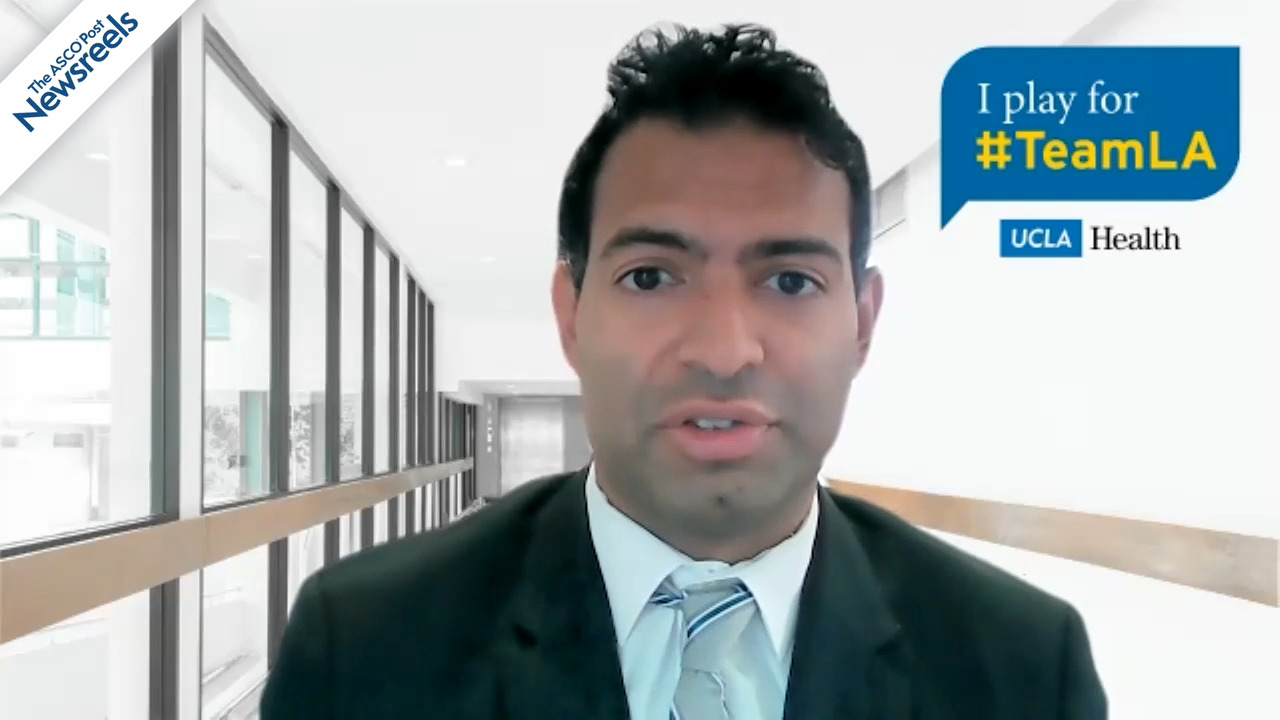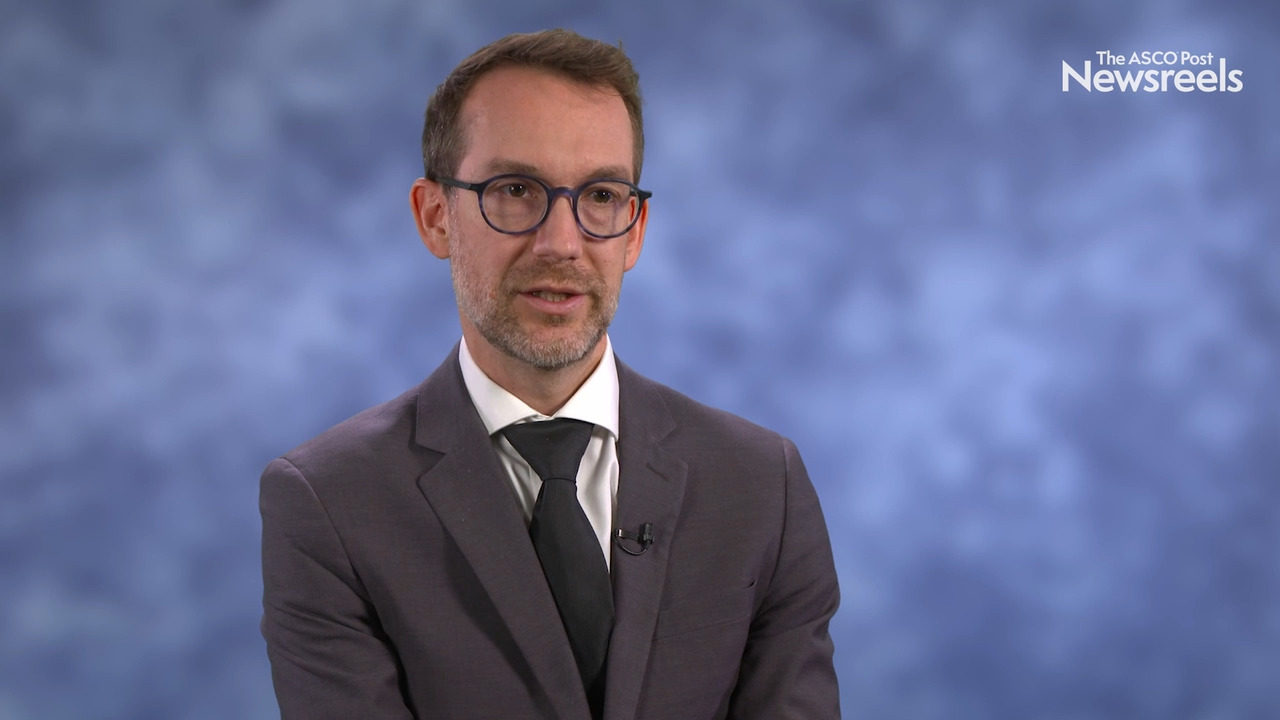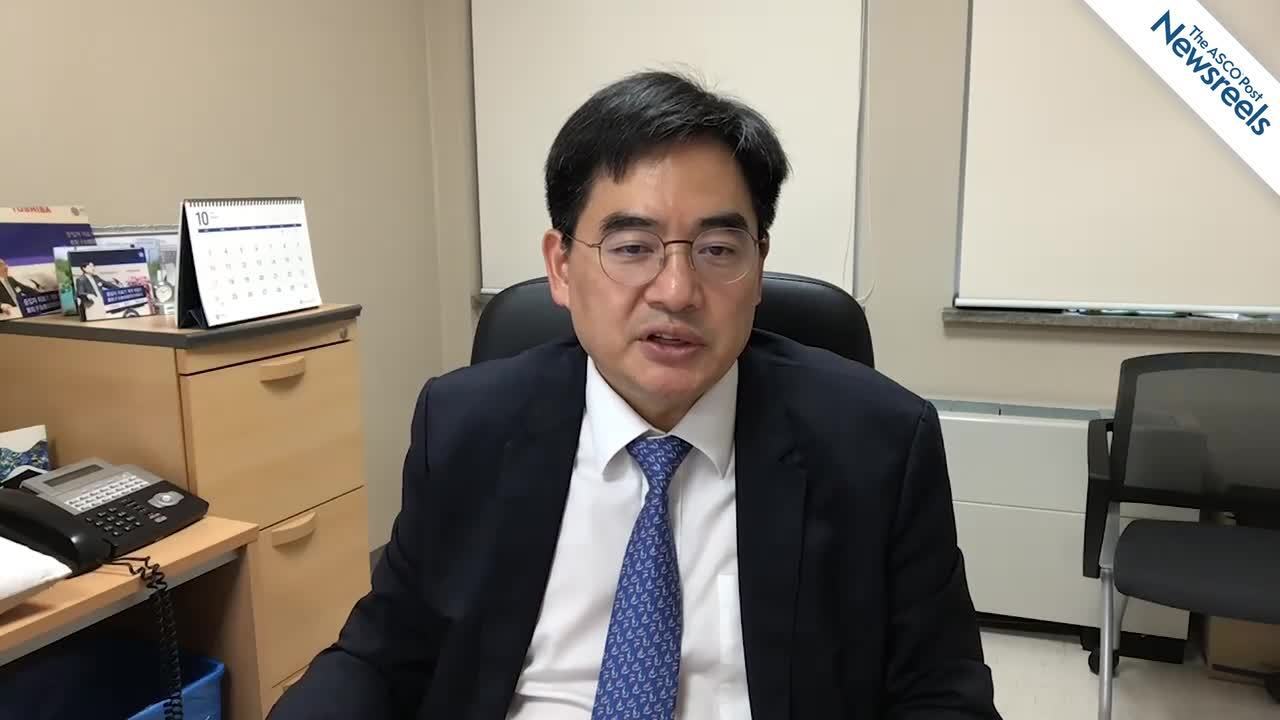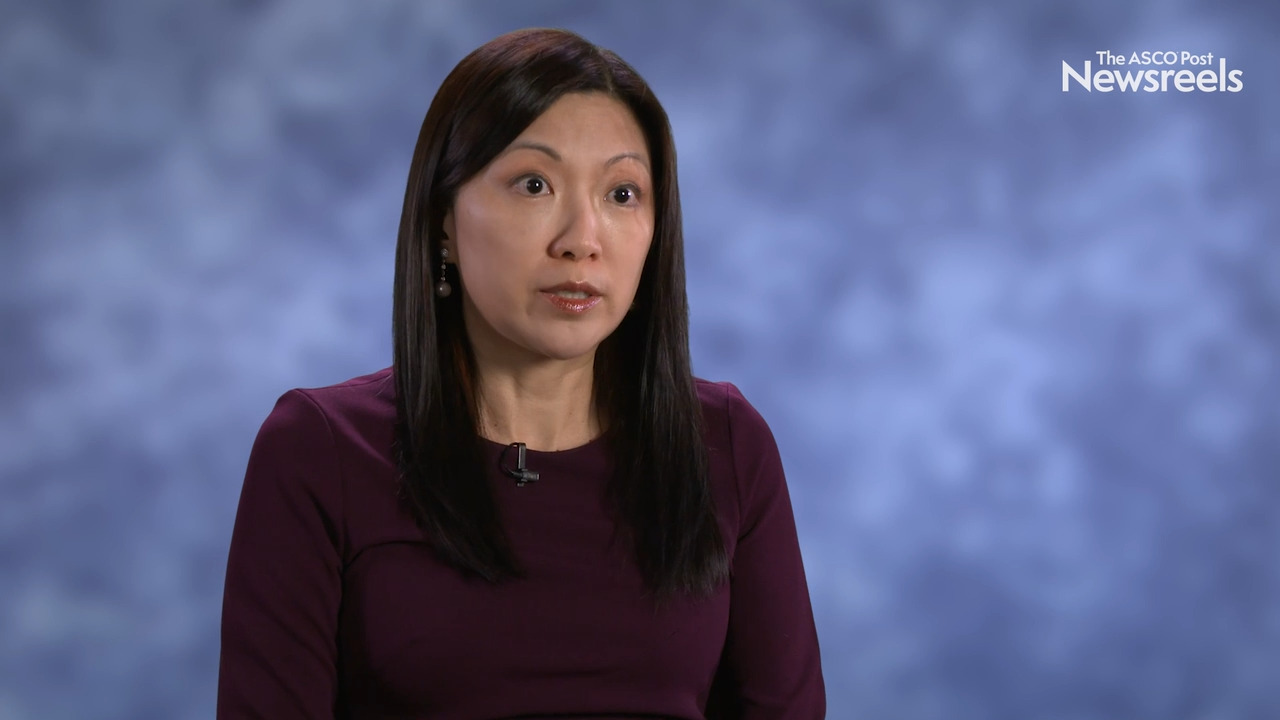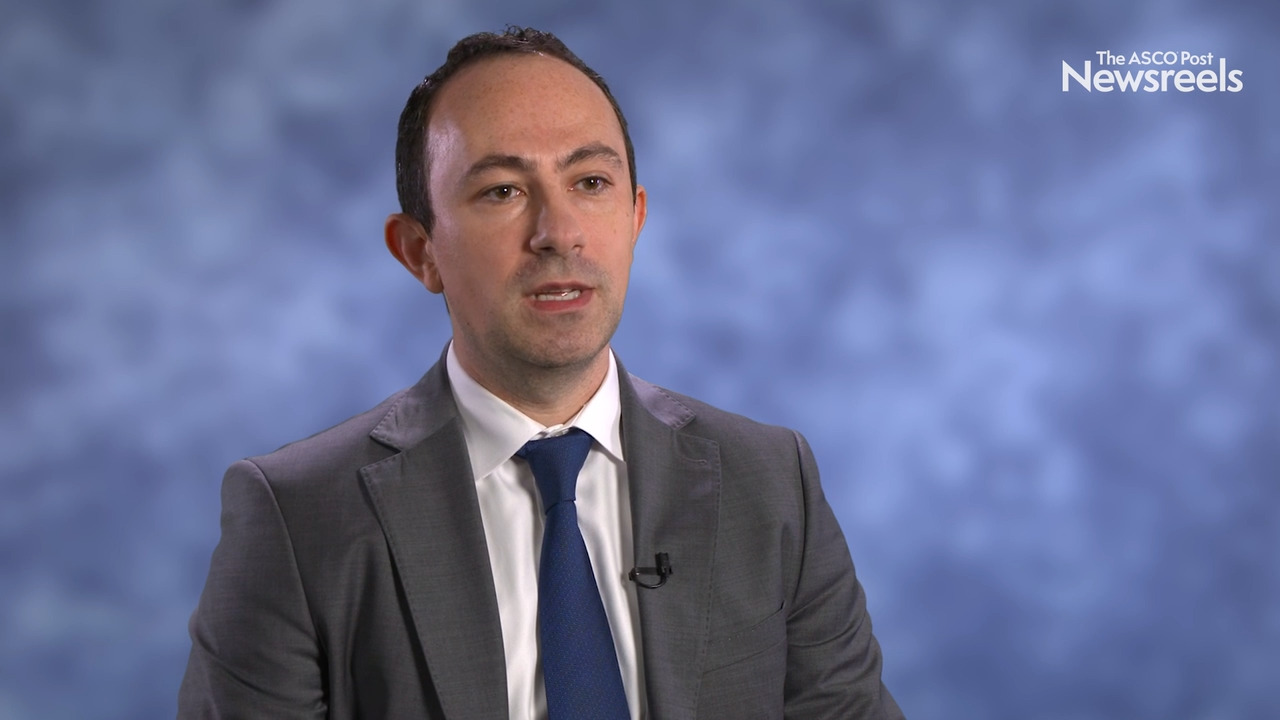Daniel J. Ma, MD, on HPV-Associated Oropharyngeal Squamous Cell Carcinoma: Comparing Longer and Shorter Courses of Radiotherapy
2021 ASTRO Annual Meeting
Daniel J. Ma, MD, of the Mayo Clinic Alix School of Medicine, discusses results from a phase III study of patients with HPV-associated oropharyngeal squamous cell carcinoma. Comparing a 2-week course of de-escalated adjuvant radiation therapy with the standard 6-week course, investigators found that the shorter treatment appeared to have less toxicity, higher quality of life, and similar disease control as the longer standard-of-care treatment (Abstract LBA1).
The ASCO Post Staff
Amar U. Kishan, MD, of the University of California, Los Angeles, discusses findings from a meta-analysis of clinical trials in patients with localized prostate cancer. The phase III results suggest that the use of androgen-deprivation therapy (ADT) or prolonged adjuvant ADT with radiotherapy may benefit patients with localized prostate cancer. Further biomarkers are needed to better personalize treatment intensification (Abstract 8).
The ASCO Post Staff
Robert A. Olson, MD, of the University of British Columbia, discusses phase II findings from the SABR-5 trial on stereotactic ablative radiotherapy for up to five oligometastases. Although toxicity of liver and adrenal metastases warrants caution, the trial seemed to show that this type of radiation treatment is relatively safe and should be studied further, given the long overall survival in this patient population (Abstract 6).
The ASCO Post Staff
Yongbae Kim, MD, of the Yonsei Cancer Center and Yonsei University College of Medicine, discusses findings that showed the use of internal mammary area irradiation (IMNI) in regional nodal irradiation did not significantly improve disease-free survival for women with node-positive breast cancer. However, patients with medially or centrally located tumors may be considered for treatment with IMNI (Abstract 2).
The ASCO Post Staff
C. Jillian Tsai, MD, PhD, of Memorial Sloan Kettering Cancer Center, discusses results from the first randomized trial of stereotactic body radiation therapy (SBRT) to treat oligoprogressive, metastatic lung and breast cancers. The standard of care for patients with these types of tumors is to switch to a different systemic treatment. Adding local therapy such as SBRT may help treat drug-resistant lesions (Abstract LBA3).
The ASCO Post Staff
Youssef Zeidan, MD, PhD, of Florida International University and the Lynn Cancer Institute, discusses the advances in radiotherapy planning and delivery that have reduced cardiac radiation exposure in patients with HER2-positive breast cancer who are treated with radiotherapy and trastuzumab (Abstract 12).
